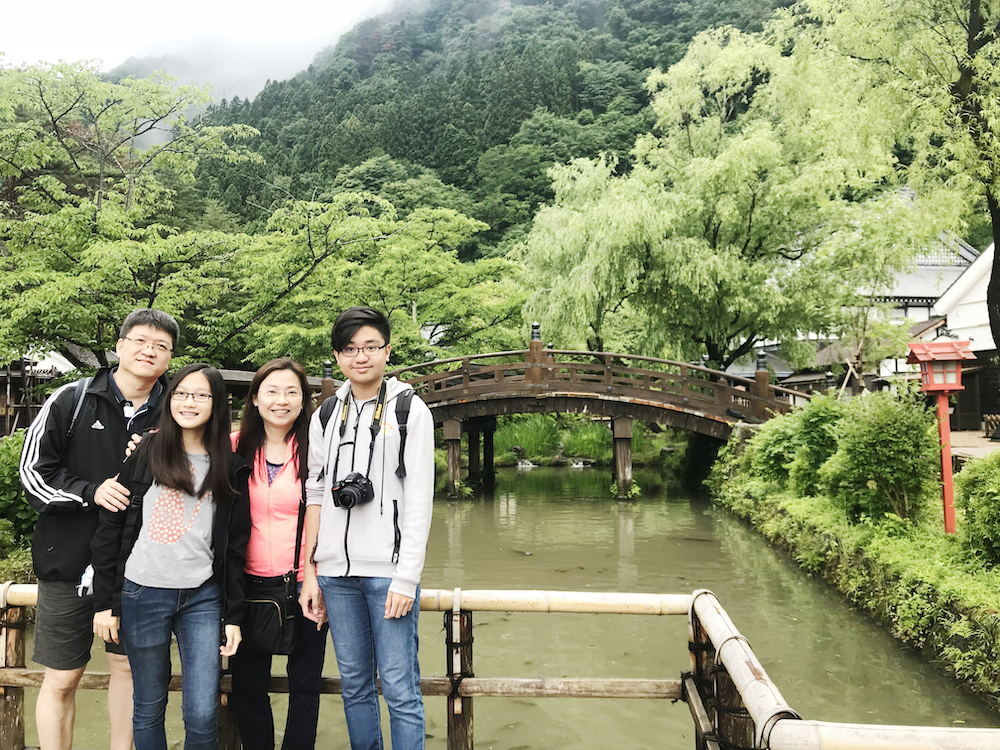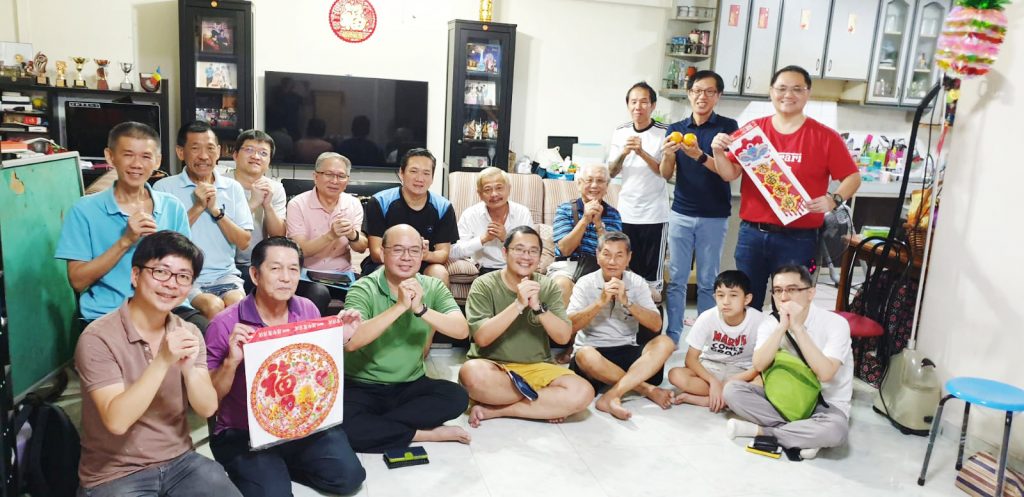
Yeo Ghim Joo
Men Division
When I was 16, I attended a Student Division (SD) meeting with my classmate where I learnt about the transformation of stars from Ikeda Sensei. And I wanted to be the star that turned into a sun. I started chanting the daimoku of Nammyoho-renge-kyo that night and embarked on a journey to transform my life.
The first actual proof of chanting profoundly impacted my life. From regular failing scores, I scored an A1 in the English Language at the Secondary Four examination. I became more confident in the use of the language and successfully entered the National Institute of Education in later years.
As I participated in SD meetings, National Day performances and props production, I learnt about Nichiren Buddhism, Ikeda Sensei and the Singapore Soka Association (SSA). I also joined the Future Division (FD) as Zone IC just as I started National Service. My name-list had more than 50 names of secondary one and two students but attendance at meetings was always fewer than 10. However, after two years of hard work calling the students, holding dialogues, visiting them and garnering the support of the parents, I managed a breakthrough and attendance rose to more than 20!
I finally received the Gohonzon in 1995. When I embraced this practice in 1987, my elder sister had vehemently opposed my practice and one of my brothers even attended a meeting to ensure that I had not joined a cult. In recent years, my sister has started to intermittently attend discussion meetings and other activities.
One of Sensei’s guidance reads: “As we win and win again, we are at the same time creating an environment of the most resplendent success and glory. In all things, life and environment are one. Therefore, by achieving self-mastery, we also achieve victory in our environment.”
Winning In My Career
While considering to be a teacher, my objective was to challenge my weaknesses and achieve a great life transformation. I lacked confidence, had a stutter and speaking in front of others was a challenge. The process of challenging myself provided opportunities for me to learn, and I accomplished more than expected.
The first 10 years in a primary school was spent teaching the weakest Primary Six class. The main reason for the deployment was that “I was fierce enough”. Furthermore, achieving a relatively high passing rate each year, I gained the trust of the school.
In Buddhism, we believe that everyone has infinite potential. Most of my students come from families with various difficulties. I adopted a strict but caring teaching method, taught at a slower pace and gave them repeated practices.
For two years in the school, I also took charge of providing breakfast to fifty students from families with financial difficulties. I did weekly grocery shopping at the supermarket after school, carrying the foodstuff back to school by myself, and continued with my marking until 7pm before going to SSA activities.
I was also a member of the school’s examination committee. To overcome my tight schedule, I computerised some administrative processes and unwittingly won the Outstanding Contribution Award (OCA) twice for using computer software to simplify work procedures and improve work efficiency.
What helped me persevere and achieve breakthroughs was Sensei’s guidance: “Young people must be able to bear hardship”. “Hardship and hard work develop individuality, so keep going.”

Winning In My Family
I have two children, an eighteen-year-old son and sixteen-year-old daughter. I took them to SSA activities from a young age and they started reciting the gongyo at around the age of five or six. I was very strict and had often insisted that they chant abundant daimoku. Looking back I realise that I really lacked wisdom, not aware that they had already started to dislike what I was putting them through.
My son did well in PSLE but when he entered Secondary One, he started to dislike his school and teachers. He skipped school several times and refused to do homework. He immersed himself in computer games and left all the work till Sunday, sometimes not touching them at all.
As a teacher I absolutely cannot accept students not doing their homework and to see my son behaving like this really annoyed me. I would start scolding and really thought to let him wreck his life. But I could not bear to do so, I would end up dropping my teacher persona and helped him with his homework. At times, he would cry and throw tantrums out of the blue, usually minutes before my wife and I left home to attend meetings. On several occasions, we had to absent ourselves from meetings. This hell-like state of life for the family lasted about six months and my son’s grades plummeted.
Nevertheless, my wife and I were convinced that we were doing the right thing — chanting daimoku assiduously, participating in SSA activities, taking good care of the home and working diligently to produce results at our jobs.
In August 2015, I heard this guidance at a prayer meeting: “Because they help their parents grow and ‘teach’ them about the significance of genuine faith, they are called ‘fortune children’.” My wife and I were taken aback and awakened to a new understanding of this guidance!
I determined that I must manifest the Buddha’s life condition of courage and wisdom to completely transform the situation. Henceforth, my temper changed tremendously. Where previously I unwillingly helped my son with his homework, thinking that he did not care, I now embraced him and determined to help him build confidence.
In 2016 after failing Mathematics and scoring badly for his other subjects, he inexplicably asked for a Math tutor. He went on to score “A1” for Mathematics in the final exam. Although his overall average result was low, this entire process taught my son that he needed to put in effort to reap good results. This eradicated his previous “no need to study” attitude, no longer needing my help. Although he still played computer games, he had self-discipline and set time for homework and revision. Our relationship greatly improved and we were able to communicate well.
At junior college, he became very busy with school work and slept very little, but more importantly, he had no time for computer games. Amazingly he continued with a “never give up attitude”, while pursuing his desired results.
In an essay to Men Division, Ikeda Sensei wrote: “The victory of kosen-rufu depends entirely on each individual. For a member of the Men Division, his greatest source of pride is the number of victories he has achieved through faith. It’s not about others; it’s about you. It’s about you winning, and winning over yourself. By doing so, you will provide inspiration and encouragement to all.”
Yes! It’s about us! We have to win! I will continue to win over myself and advance. I am determined to enable my children to return to the path of faith and be fostered in this big family of Soka. I must arouse great wisdom through diligent “Courageous 1-2-3” action, creating value amidst the new norm so as to bring cheer to everyone around me.
(Adapted from August 2020 issue of Creative Life)
